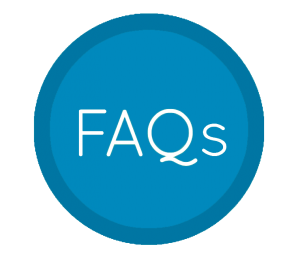FAQs for buyers are an excellent way to start the buying process or even to clear up any questions you have throughout the process.
Buying property can be an incredibly stressful time, but it’s important to ask the right questions and take the time to do thorough research. Although this may seem time consuming now, it could save you thousands in the future!
Where should I buy?
This is different for everyone, but it’s often beneficial to buy in areas you know well or at the very least where you have a ‘feel’ for the area, this means you know about shops, transport and demographics. Having said that, there are also many up and coming areas with potential. Ultimately, you should buy where you want to live and can afford.
I can’t afford to buy on my own – can I buy with someone else?
Yes you can. You should seek legal advice about how the property is held, such as tenants in common or joint tenants and to what share of the property you own. It’s a good idea to also discuss the ramifications if the other party or parties wish to sell and you don’t or there is any personal falling out.
What factors determine the purchase price of the property I’m buying?
Supply and demand together with interest rates are the overriding factors in determining price.
As the agent is being paid by the seller, they’re going to make buyers pay as much as they can for the property. It’s your job, as a buyer, to pay the least!
Do I need a buyer’s agent?
Although some time poor people or nervous negotiators may consider a buyer’s agent, it’s not usually necessary.
How do I know if I’m getting a good deal?
Did you buy the home at a price you were happy to pay? If so, then yes!
There are a number of companies that provide sold prices for a street or even a whole suburb for a small fee, such as Core Logic RP Data. This will give you some way of comparing properties. You can also get a registered valuation, however these can be quite costly. Ultimately it’s all about finding a home you love in an area you want to live at a price you can afford.
Should I talk with a bank before looking at homes?
It’s not absolutely necessary to talk to a bank or lending institution first, however you should be absolutely sure of your finances before entering into a contract to purchase.
Is it better to buy a house or an apartment?
This is really determined by your lifestyle. If you’re unsure, perhaps the best way is to rent the type of home you are contemplating to see if it ticks all of the boxes.
I own a home, should I buy another before selling my current home?
One of the best feelings is to pay off your own home. Having said that, using equity from your current residence to purchase your next home may be an excellent wealth creation strategy. You should get advice from your accountant or independent financial adviser and lending institution for such things as tax implications and affordability. You should also ask the ‘go wrong’ questions such as if interest rates went up or you were out of work for some time, how would everything be?
How many homes should I look at before putting in a purchase offer?
People often look at a home and ‘just know’ while others take more time. There’s no right or wrong answer here, but make sure you do your research and due diligence.
Should I buy through auction or private sale?
Unfortunately, you have no control over the method. It’s about finding the right home and dealing with the condition it’s being sold under, but it’s worth remembering auctions are an unconditional sale. If you are buying at auction, here are our Secret Auction Tactics – part one, two and three.
Should I get a building inspection?
Definitely! It may seem tedious, but it’s essential for checking structural issues, budgeting for repairs, checking electrical wiring and smoke alarms, identifying unsafe areas of the property and evaluating sundry structures. While you’re organising your building inspection, we suggest you also arrange a pest inspection.
How much should I offer the sellers?
This is another difficult one to answer because it really depends on how much you want to buy the home. Terms and conditions, such as the settlement period, can affect the quality of your offer, but you don’t want to get into a ‘back and forth’ process with other buyers. Your initial offer should be sensible and respectful.
Just remember that most auctions, whilst they purport to accept offers prior, they rarely do. The agents want to use all the advertising to maximise their profile!
How long does the seller have to respond to my offer?
There is no set time for a seller to respond, although in some contracts in Victoria, if the seller doesn’t respond within three business days, the offer lapses. You can set a date for when your offer expires, but a tight deadline may harm your chances of a successful outcome.
What if my offer is rejected?
You may be able to resubmit a higher offer or the same offer on better terms and conditions.
What’s the next step after my offer has been accepted?
Your deposit should be paid if it hasn’t already and you need to notify your conveyancer or legal representative and broker/lending institution.
Do I need to do a final walk-through?
In Victoria you’re entitled to a final inspection within seven days of settlement. You should expect to see the property in the same condition as when you signed the contract for sale.
What is the ‘cooling-off period’ in a contract?
The ‘cooling-off period’ allows a potential buyer to change their mind after signing a binding contract to purchase real estate. You have three business days within which to exercise this option. You should advise your legal representative to notify the agent involved, but remember the seller is entitled to withhold 0.2% of the purchase price if you do decide to cool-off.
There are some conditions where the provisions of the cooling-off period does not apply, including if your offer is accepted less than three clear business days before the auction date, buying on the day of the auction and buying three days after the auction.

